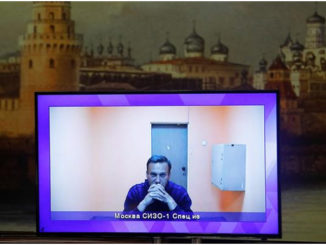
The BJP is once again willing to accommodate dominant caste groups
Effecting the fourth change of guard in a State this year, the Bharatiya Janata Party (BJP) replaced Vijay Rupani with Bhupendra Patel as Chief Minister in Gujarat on Sunday. Though the decision came out of the blue, intrigues that led to it had been gaining momentum for a while. To keep it all under the wraps, the government in Gujarat went so far as arresting and sending to jail a journalist under sedition charges for reporting that a change of guard was on the cards. Patels or Patidars have been the backbone of the BJP in Gujarat, but the elevation of Narendra Modi as Chief Minister in 2001 unsettled the cozy relations between the community and the party. Anandiben Patel succeeded Mr. Modi after he became Prime Minister, but she did not last in office for long. A partial ejection of Patels to accommodate a wider range of caste groups in its tent was the BJP approach under Mr. Modi and Amit Shah, and their national strategy mirrored this Gujarat experiment. The Patels in turn rebelled against the Modi-Shah axis several times in the last two decades. Mr. Rupani was less than impressive in administrative tasks or management of the social coalition. The COVID-19 pandemic exposed his failures starkly. With the Assembly elections looming, the Patels getting more restive, and the Aam Aadmi Party trying to emerge as a more viable opposition than the rudderless Congress, the BJP had to act. The Chief Minister-designate is a first-time MLA who was elected from the constituency vacated by Ms. Patel. The change also underscores the high command culture that is now entrenched in the BJP.
The return of a Patel at the helm indicates a reversal of the BJP strategy of building coalitions of diverse caste groups under a leader from a marginal caste. Mr. Modi projected himself as a backward class leader in 2014, and subsequent choices in leadership at various levels largely followed this trend. There have been exceptions, such as Yogi Adityanath, a Rajput, who was elected Chief Minister in Uttar Pradesh. Within the party and outside of it, dominant castes have been resenting this and the BJP has now begun to feel the pressure. When it had to replace veteran warhorse B.S. Yediyurappa, a member of the dominant Lingayat community as Chief Minister in Karnataka, the BJP ensured that his successor was from the same community. The ongoing stand-off between the party and the Jat farmers in U.P. and Haryana is also indicative of the tension between the BJP and a dominant social group. The party’s Chief Minister in Haryana, Manohar Lal Khattar, is facing the heat. These communities are bargaining for a bigger share of power in the BJP’s Hindutva tent. The BJP is partially acting under pressure, but it may also be feeling more confident of the support of the marginal communities and poorer sections to accommodate its traditional supporters.
(The Hindu)





Be the first to comment